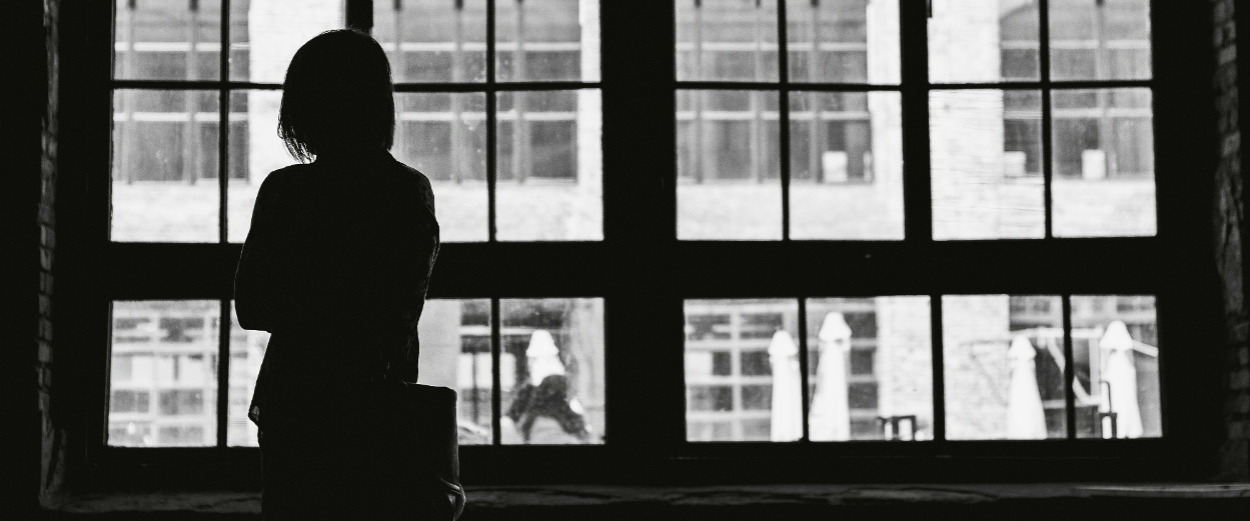By Adriana Ermter
In our monthly column, senior writer and editor Adriana Ermter shares her personal experiences with breast cancer.
To say that having a breast cancer diagnosis is a mind-fuck is an understatement. And there’s no amount of yoga, psychotherapy or life experience that can prepare you for it. For me, hearing these words felt like I was falling into a deep pit that I had no way of crawling out of. My diagnosis wasn’t something I could negotiate or talk my way out of either—two things I am fairly good at. This lack of control and inability to change my situation hit me hard. I had to accept that cancer was my new reality, and this filled me with fear. The feelings that followed oscillated between depression and anxiety—and they weren’t fleeting.
Anxiety and depression came and went without rhyme or reason Anxiety’s tight grip made it hard for me to breathe and to think rationally. The what ifs made my mind spiral, making me second guess every single situation. I obsessively researched breast cancer and then later, at night, wouldn’t be able to turn my brain off and then I’d have insomnia. It was exhausting. Depression, on the other hand, was different. At its worst, depression manifest with me blaming and shaming myself. The conversations in my head ranged from telling myself that I’d done something or thought something and had somehow brought cancer upon myself, to thinking that I was going to die alone and no one would care. At other times, on the easier days, depression left me lifeless with little energy. I wouldn’t shower or brush my teeth. I’d wear the same sweatpants and sweatshirt for a week, and I didn’t care. And I secluded myself, in my home, and screened my calls. Yet, all I could do was go through it all and try my best to rise up again.
I still have anxiety from time to time, but my coping skills are better now. Walking helps. There’s something about the bi-lateral movement that stimulates the brain. Plus, it gets me out of my condo and into the fresh air. Not that I’ve regained the person I was pre cancer diagnosis. That’ll never happen, and I’ve almost come to terms with this fact. I’m someone new now.
Maybe you’re going through this too and experiencing challenging emotions like depression, PTSD, and anxiety. I wish I had words of reassurance or that I could tell you these feelings will eventually pass, but I don’t, and I won’t. Your mental strength is too important for your recovery to gloss over this. What I can offer though, is some insight into the emotional side of breast cancer and how to recognize and understand these feelings better, so that you can protect your mental health. I believe that knowledge gives us strength, even when our bodies feel weak and tired, and are in pain. I hope that this information can help shine a light on what you’re going through and provide you with the resources and support you need, so that you can reclaim your mental strength and yourself.
Anxiety
Anxiety can manifest in various forms, from persistent worrying and restlessness to panic attacks. The uncertainty surrounding treatment outcomes, fear of recurrence, and the physical changes brought about by surgery, chemotherapy or radiation can all trigger it. At times, my anxiety was so great I felt as though I couldn’t take a deep breath. I’d be at work or on the subway and a cold sweat would sweep across my entire body, leaving me damp and shivering and literally gasping for air. People sitting next to me in the workplace lunchroom or on the TTC (Toronto Transit Commission), would look at me with wide eyes before quickly scurrying away. I’m sure I looked like a goldfish and it was embarrassing.
A friend of mine, who practices yoga, suggested I try deep breathing. Initially, when she said this, I wanted to throat punch her. But then one day, when I was lying in bed having an anxiety attack, her words popped into my head, and I tried it and it helped. It’s taken a ton of practice, but when I slowly breathe in and out it’s calming. I need at least 60 seconds to get there, but it works. Additionally, the Canadian Mental Health Association can provide support and coping strategies for managing anxiety.
PTSD
Breast cancer is stressful, so it makes sense that individuals who have undergone or are still going through a diagnosis, surgery or treatment might experience post-traumatic stress disorder (PTSD) symptoms. The most common are flashbacks, nightmares, and intense emotional reactions like crying, outbursts, even rage, and are typically caused by a memory, environment or situation. They can happen suddenly or days or weeks or months after a triggering or challenging event. Everyone experiences PTSD differently and most of us don’t want to talk about it because we fear we’ll re-experience the horrible thing all over again. It can feel easier, safer even, to just stuff the scary feelings down and compartmentalize them.
The thing is though, that it actually helps to talk our PTSD triggers through. Not with your parents, friends, or co-workers, but with a qualified psychotherapist. I experienced a bit of PTSD right after my surgery, before I began treatment. My symptoms presented as unbearable dreams that I couldn’t fully wake up from. I knew I was dreaming and I would be able to rouse myself, but never completely, and so I would drift back to sleep again and the nightmares would simply pick up where they’d left off. Talking about this with my therapist was my game changer. She helped me understand what I was feeling and deal with it head on. This was very empowering for me, because I felt like I was finally able to do something proactive for myself. It also allowed me to sleep better, and sleep is golden when you’re trying to heal. If you don’t have a therapist you trust and would like one, organizations like BetterHelp Online Therapy and the Canadian Counselling and Psychotherapy Association can help by connecting you to the right therapist for your needs.
Depression
Shadows of persistent sadness, loss of interest, lack of appetite, the inability to sleep or changes in our sleep patterns can all be signs of depression and are common symptoms of breast cancer. The overwhelming nature of the diagnosis, coupled with the physical toll of treatment are the culprits and can contribute to the onset of these feelings. I experienced depression when I was undergoing treatment. I was physically exhausted, mentally depleted and trying to pretend I had it all together, that I was still the same person. Man was I wrong.
I wasn’t prepared for the waves of isolation and despair that overcame me at unexpected times. Because I worked through treatment, I didn’t recover as quickly as I should have, and my GP insisted I scale back my workload to three days per week. I was terrified to do this as I worked in an unsupportive environment back then. But the break helped, and the time I spent resting allowed me to reflect on how emotionally drained I was and realize that I needed to make some positive changes for my mental health. Having the space to address and reshape my thoughts improved how I felt. It provided me with clarity and the capacity to rethink my life and to look beyond my illness and into my future. These small glimmers of hope slowly helped me be me again—the Adriana who loves her cat (now, two cats), grows hot peppers on the balcony every summer, fantasizes about living in Mexico and can’t quite figure out how to use the Cloud (or any other tech platform or gadget without help). Still, depression has many layers and requires support to overcome. The Mood Disorders Society of Canada is a great resource for individuals like me who grapple with depression and need more than what they can give to themselves.
Adriana Ermter is a multi award-winning writer and editor. Her work can be read in Sotheby’s Insight, Living Luxe and IN Magazine, as well as online at 29Secrets.com, RethinkBreastCancer.ca, Popsugar.com and AmongMen.com. The former Beauty Director for FASHION and Editor-in-Chief for Salon and Childview magazines lives in Toronto with her two very spoiled rescue cats, Murphy and Olive. You can follow Adriana on Instagram @AdrianaErmter.








